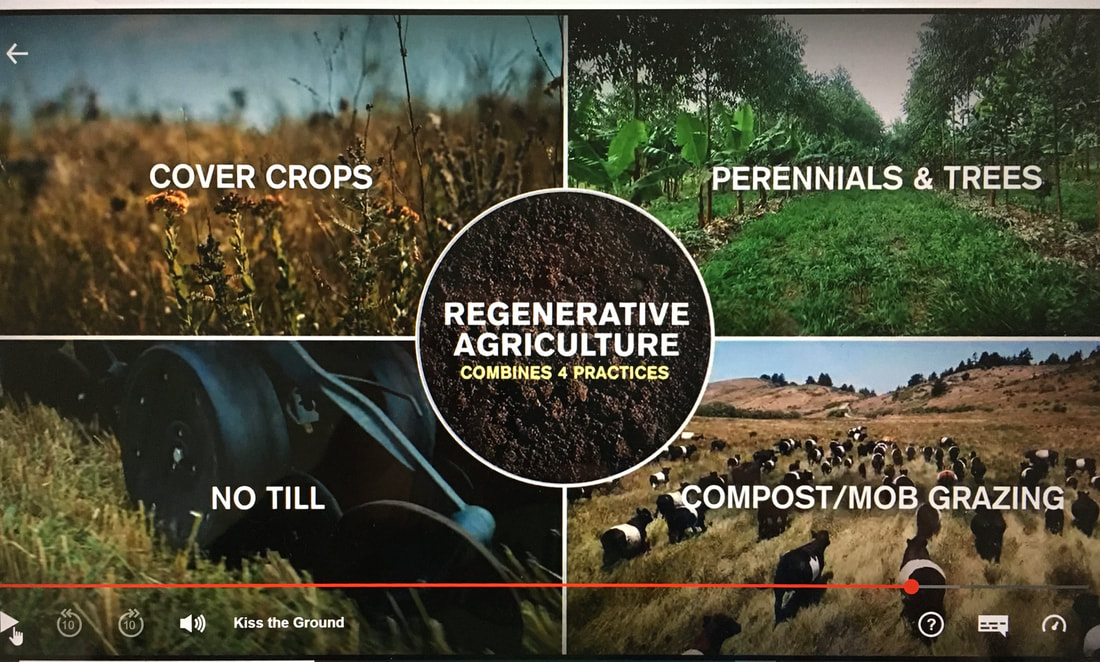I don’t remember if I was skeptical before my almost 40-year career as a journalist, but I’m definitely skeptical now. So when I hear normally rational environmentalists and climate activists claim that “regenerative agriculture” is going to save our planet from climate catastrophe, I feel the hairs rise on my neck.
I just watched “Kiss the Ground,” a documentary on Netflix that explains how carbon-rich soil – not depleted, exhausted, dusty dirt – can reverse climate change. It incorporates the four elements shown in the photo above: planting cover crops that enrich the soil, perennials and trees that suck carbon out of the air and store it underground, no-till farming that creates the least disturbance possible to the soil, and animals that rotate through different paddocks of a farm/ranch and deposit their poop, which acts as a natural fertilizer to further enrich the soil.
You know the adage that says the first thing you do when you’re trying to get out of a hole is to stop digging. But there was no mention in the 84-minute film of the need to stop burning fossil fuels. Don’t get me wrong. Many of the components of regenerative ag are admirable, though I do question all the animal inputs. I see that they are essential to make this system work, but they – especially cattle – emit an awful lot of methane in their burps, and methane per molecule is 100 times worse for the climate than carbon dioxide over a ten-year period, and as I’ve said a million times, the immediate future is what we need to worry most about if we have any hope of avoiding disastrous climate tipping points – like the melting of the ice caps and the permafrost under the Arctic Ocean alone that holds 60 billion tons of methane and 560 billion tons of organic carbon. Some scientists think it’s already too late.
Regenerative agriculture pretty much eliminates manufactured inputs like chemical fertilizers and weed killers and relies on an ecosystem’s natural defenses to be strengthened enough to combat enemies like weeds and droughts. That means farmers/ranchers’ costs are greatly reduced and their profits increased, which is one of the main themes of the film as two promoters of the system try to convince often skeptical farmers and ranchers. One even bets his ranch that he can produce the same results on anyone else’s property. Regenerative ag is also healthier for the humans practicing it.
As a strict vegetarian for the past 30 years and mostly a vegetarian for 20 years before that, I think about the reasons I don’t eat animals, and there are so many. One is their impact on the earth under our mostly industrial farming methods, where almost all the grain grown goes to feed them so they can feed us. It destroys ecosystems and is incredibly polluting. The industrial system is also unbelievably cruel to animals, which is a main reason I don’t want to support that system. Under regen ag, neither of those is true – until it comes time for slaughter. But, to mangle Shakespeare, isn’t it better to have lived and lost than never to have lived at all? (And yes, I know animal rights activists say the pretty picture of cows happily grazing on grass in the fresh air is not the whole picture.)
Anyway, I encourage you to watch the film with an open but reasonably skeptical mind.

 RSS Feed
RSS Feed
